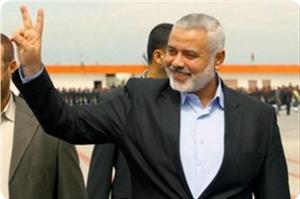
 Palestinian Premier Ismail Haneyya left the Gaza Strip via the Rafah border terminal afternoon Friday en route to Egypt on a few days visit, the PIC reporter said.
Palestinian Premier Ismail Haneyya left the Gaza Strip via the Rafah border terminal afternoon Friday en route to Egypt on a few days visit, the PIC reporter said.
Haneyya told the Friday congregation that Hamas did not interfere in the internal events in Egypt and Syria.
He denied presence of Hamas fighters in Syria fighting alongside the opposition and denied differences within the movement over the conflict in Syria.
Recent press reports alleged that Hamas was divided over the incidents in Syria with one team supporting the regime and the other supporting the opposition. Other reports spoke of tense relations between Hamas and Egypt.







